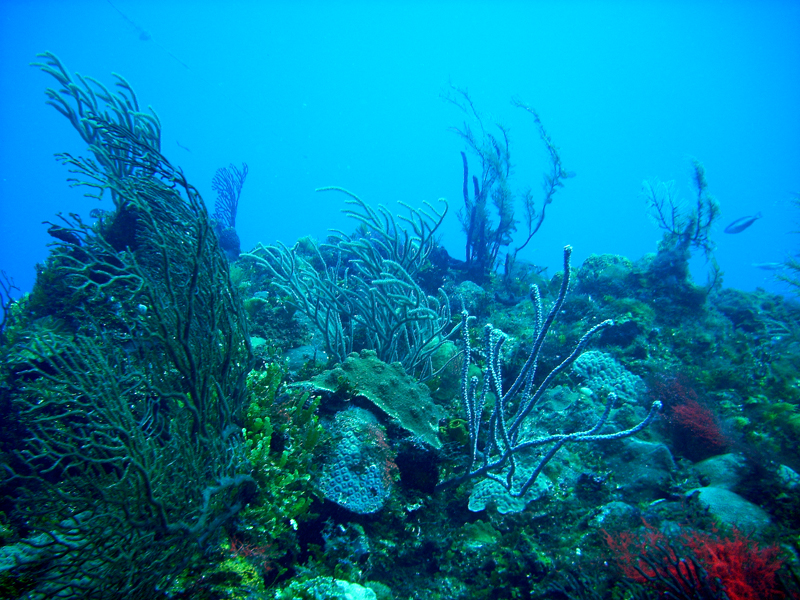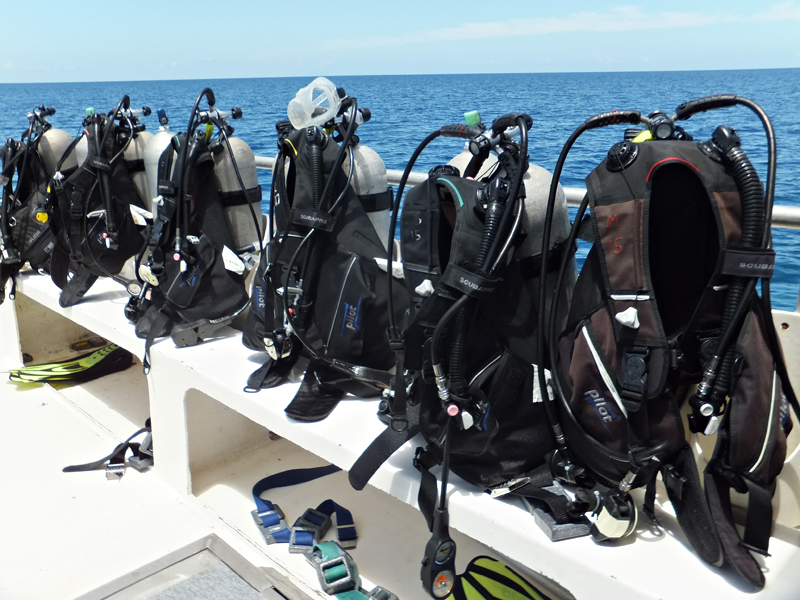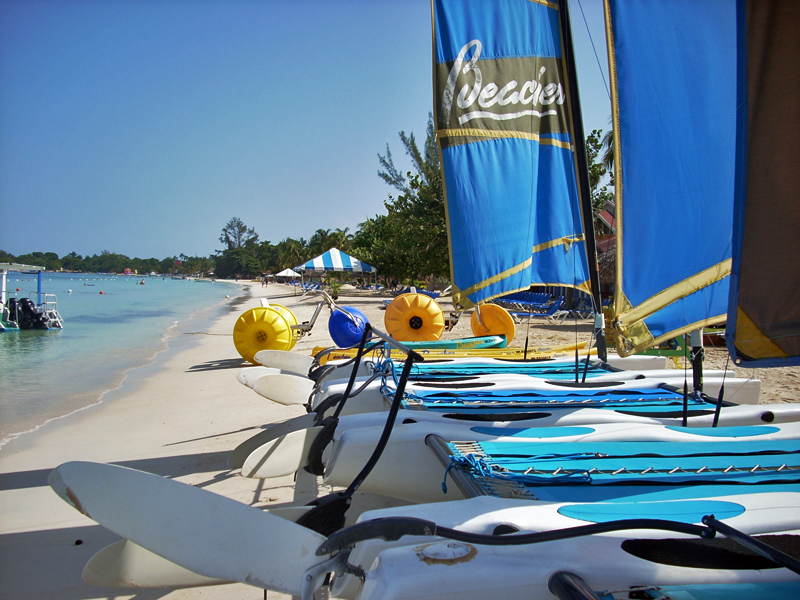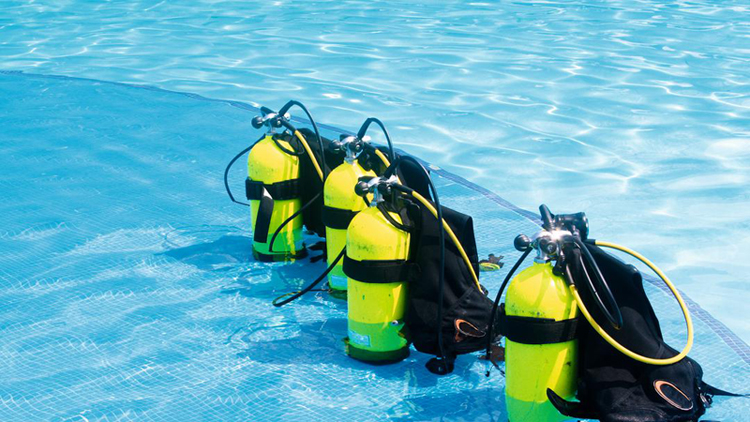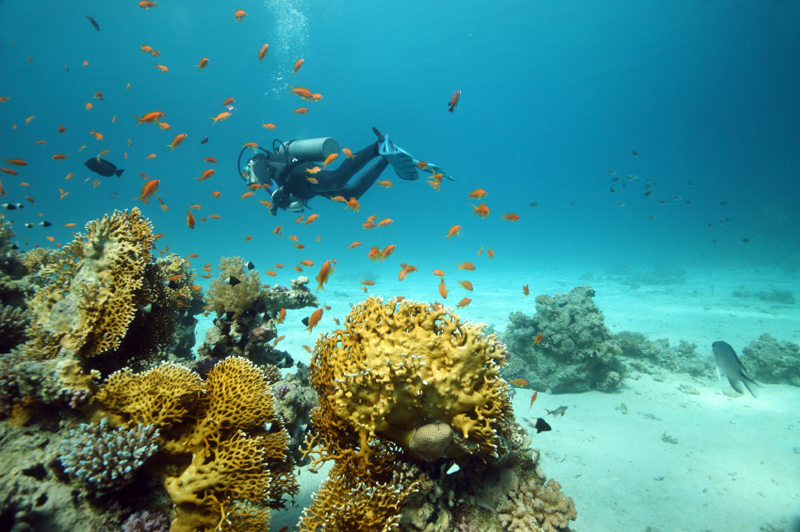
Lots of Sea Life on the Reef
Learning the Basics of Scuba Diving
Scuba diving is one of the most well known and loved sports in the world, and not only is it incredibly fun and enjoyable but as well educational. Many people even have a career in scuba diving, as an underwater photographer or deep sea diver, for instance.
The Basics
There is much to learn when it comes to scuba diving however there are a few basics of scuba diving that are especially important. One of the very first basics of scuba diving that any interested scuba diver should know is that scuba certification involves a lot of classroom work and in-water practice. You need to get hands on experience with your equipment and be fully aware of the scuba diving process before you try it in open water.
There are some important concepts that are necessary to learn in order to learn the basics of scuba diving and how to dive safely, and this includes: an understanding of air, understanding air pressure and the physics of diving, understanding air consumption, understanding the psychological processes that occur when you are breathing pressurized air, and learning about the risks that are involved with scuba diving.
Essential Skills
Also included in the basics of scuba diving is the learning of certain essential skills that you will have to have in order to be a successful scuba diver. In particular this includes education, and there are two basic ways that you can get yourself scuba diving in open water: to take a certification course from a major scuba diving organization, or to take a resort course which permits you to dive with an instructor to a maximum depth of 10 meters.
Of course most people opt for the first choice, because then they are able to dive on their own, but if you are looking to just get your feet wet and see if you actually enjoy scuba diving or not, then choosing the resort course method is often a good idea.
Gear
To finish off learning about the basics of scuba diving you will need to have the proper gear. You want to start with the mask, fins, suit, snorkel, and weight belt. The mask is particularly important, because you are going to need to be able to see what is going on under the water.
You also need to have a suit that fits you properly, and depending on the temperature of the water you are planning on diving in, you will either need a wetsuit, semi-dry suit, or fully dry suit. This is because wetsuits are used in warmer waters while dry suits are used in colder waters.
 The Insiders Guide to Scuba Diving in Jamaica
The Insiders Guide to Scuba Diving in Jamaica